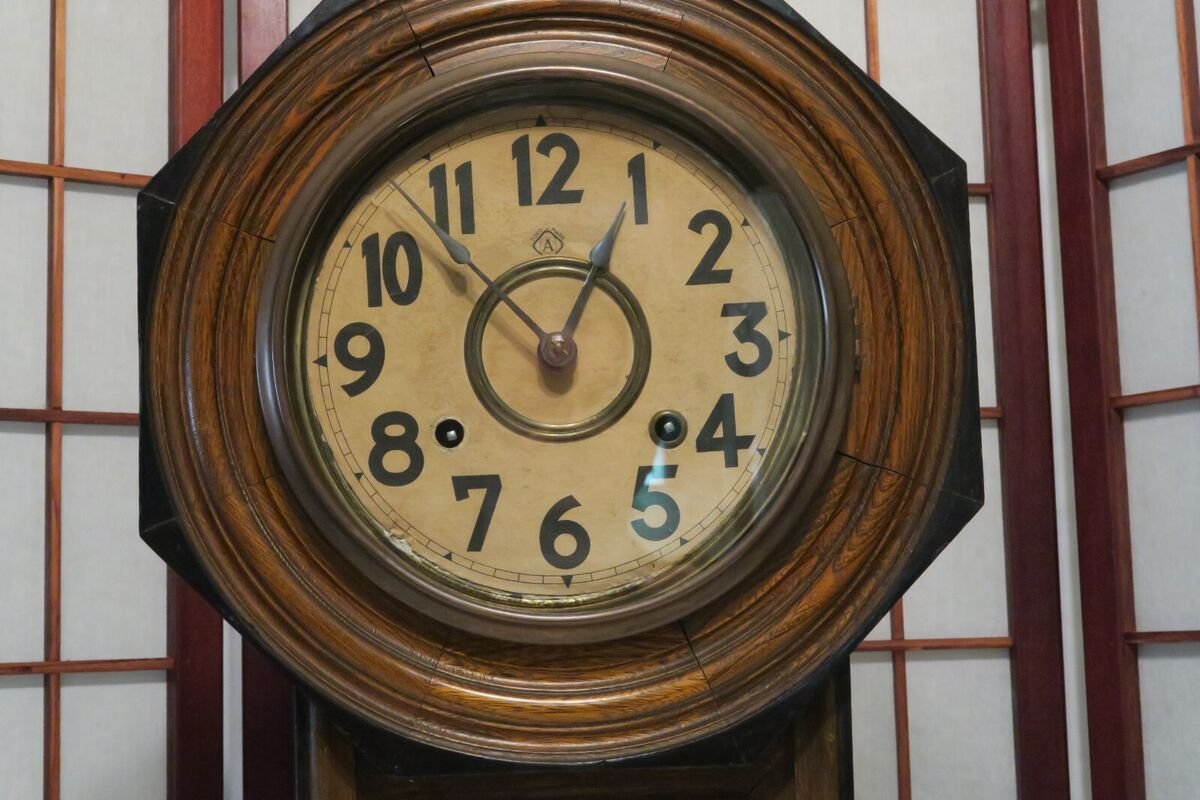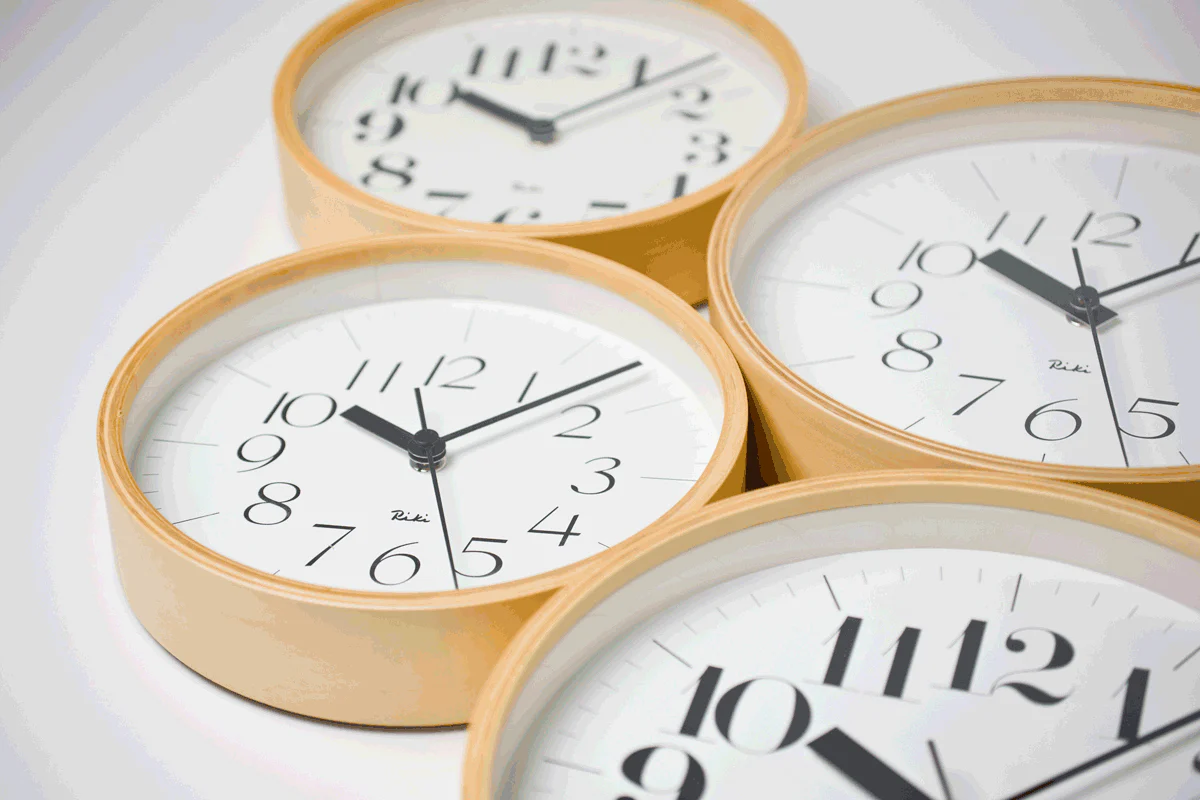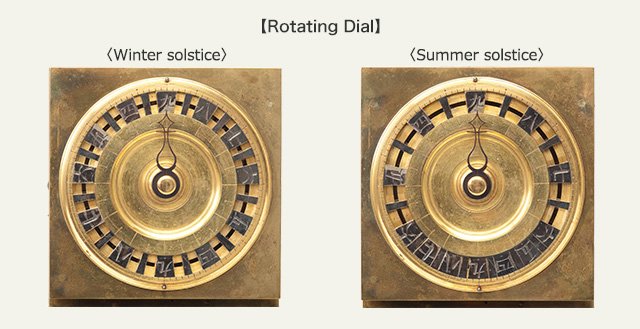Antique Japanese clocks possess a unique blend of beauty, history, and intricate craftsmanship. These timepieces, often prized by collectors, offer more than just a functional way to keep time. They tell stories of Japan’s cultural heritage, technical innovations, and design aesthetics. In this article, we’ll explore the charm of antique Japanese clocks, their historical significance, and why they continue to captivate enthusiasts today.
A Window into Japanese History
Edo Period: The Birth of Japanese Clocks
Japanese clockmaking dates back to the Edo period (1603-1868). During this time, Japan was relatively isolated from the world, and its unique timekeeping system, known as wadokei, was born. Unlike Western clocks, which operated on a fixed 24-hour system, Japanese clocks had variable-length hours that changed with the seasons. Day and night were each divided into six periods, and the length of each period would adjust depending on the time of year.
This distinctive time system led to the development of clocks with adjustable mechanisms, a key feature that sets early Japanese timepieces apart from their Western counterparts. The craftsmanship required to create these complex movements was astounding, making Edo-period clocks a true marvel of innovation.
Meiji Era: Western Influence and Standardization
As Japan opened up to the world during the Meiji era (1868-1912), its timekeeping system underwent significant changes. Western technology and the 12-hour system began to influence Japanese clockmakers. Despite adopting Western methods, Japanese clocks retained their cultural identity, blending foreign mechanics with traditional Japanese design elements. This period marks the transition of Japanese clocks into a more standardized form, yet they still retained the artistry and craftsmanship that made them unique.
The Craftsmanship Behind Antique Japanese Clocks
Precision in Design
One of the most captivating aspects of antique Japanese clocks is the incredible precision and attention to detail found in their construction. Every gear, spring, and escapement is crafted with exacting accuracy. The mechanical movements, often weight-driven or spring-driven, were designed to withstand the test of time, offering smooth and reliable operation for decades, even centuries.
Japanese clockmakers were renowned for their ability to create intricate mechanisms that not only performed well but also looked stunning. The internal workings of these clocks are often as beautiful as their external cases, with many clockmakers viewing their creations as both functional and artistic masterpieces.
Exquisite Aesthetics
Japanese clocks are not only valued for their mechanical ingenuity but also for their visual appeal. The clock cases often feature elegant designs inspired by nature and traditional Japanese motifs. Many antique clocks were made from high-quality materials such as fine wood, lacquer, and metal, and were meticulously decorated with carvings, inlays, or delicate paintings.
These timepieces were often displayed in homes as status symbols, reflecting the owner’s appreciation for fine craftsmanship and artistic beauty. Whether simple or ornate, the aesthetic appeal of antique Japanese clocks adds to their enduring charm.
The Allure of Collecting Antique Japanese Clocks
Rarity and Uniqueness
Antique Japanese clocks are rare finds today, especially those from the Edo period. Their scarcity makes them highly sought-after by collectors. Each clock is unique, with variations in design, movement, and materials. This uniqueness adds to their desirability, as no two clocks are exactly alike.
For collectors, owning an antique Japanese clock is like owning a piece of history. These clocks not only represent the evolution of timekeeping in Japan but also serve as a tangible connection to the past. The rarity and individuality of these timepieces make them prized possessions for enthusiasts around the world.
Preservation of Tradition
For many collectors, the charm of antique Japanese clocks lies in the preservation of traditional craftsmanship. These clocks are a testament to the skills and artistry of Japanese clockmakers who, even with the influence of Western technology, managed to retain a distinct identity in their work.
Owning and restoring these clocks is a way of honoring this tradition and keeping the legacy of Japanese clockmaking alive. Whether displayed in a collection or kept as a family heirloom, these timepieces carry with them the cultural heritage of Japan.

The Timeless Appeal of Antique Japanese Clocks
A Fusion of Art and Engineering
Antique Japanese clocks are more than just tools for telling time; they are works of art. The blend of art and engineering found in these clocks creates a timeless appeal that resonates with collectors and enthusiasts. Their intricate mechanics combined with beautiful designs offer a perfect fusion of function and form.
Whether it’s a mantel clock with delicate carvings or a wall clock with an intricate dial, these timepieces capture the essence of Japanese design philosophy—simplicity, elegance, and attention to detail. The craftsmanship behind each clock reflects the dedication and pride of the clockmakers who created them.
A Connection to the Past
Antique Japanese clocks serve as a bridge to the past, offering a glimpse into a time when clockmaking was both an art and a science. These timepieces are not just historical artifacts; they are functional reminders of Japan’s rich cultural heritage. For those who appreciate history, design, and craftsmanship, antique Japanese clocks offer a unique way to connect with the past while enjoying the beauty of these remarkable creations.
Conclusion
The charm of antique Japanese clocks lies in their rich history, exceptional craftsmanship, and timeless beauty. These timepieces represent a unique blend of art and engineering, offering both functionality and aesthetic appeal. Whether you’re a seasoned collector or simply someone who appreciates fine craftsmanship, antique Japanese clocks provide a captivating glimpse into Japan’s clockmaking tradition.




Verde Casino ermutigt Spieler, das Glücksspiel sicher und spaßig zu halten.
Verantwortungsbewusstes Glücksspiel hilft Spielern, das Spielen sicher und unterhaltsam zu gestalten. Höhere Stufen bieten bessere Belohnungen wie höhere Umtauschkurse für Punkte, größere Boni, Cashback und Geburtstagsbelohnungen. Für jedes
ausgegebene €10 (außer bei Live-Casino-Spielen) erhalten Spieler 1 Punkt.
VIP-Mitglieder erhalten einen persönlichen Assistenten, exklusive Spiele, VIP-Turniere und mehr.
Der VIP Club im Verde Casino bietet zusätzlichen Lohn für Spieler mit hohem Einsatz.
In unserem Casino können sie verschiedene Varianten der einzelnen Spiele
spielen, die jeweils in paar Variationen unterliegen. Fast alle Spiele können Sie sogar kostenfrei spielen, wozu nicht einmal eine Anmeldung erforderlich ist.
Stammspieler werden im Verde Casino hochgeschätzt, deshalb haben wir
bereits ein besonderes Treueprogramm eingeführt. Das ist ein ganz wichtiges Ziel
für jeden Spieler bei uns, selbst wenn manche nur behaupten,
aus Spaß an der Freude zu spielen. Je länger
Sie spielen, desto mehr erhöhen sich natürlich die Gewinnchancen.
Dazu gehören beliebte Tischspiele wie Baccarat und Casino Hold’em, die für Spannung sorgen. Mit jeder
Wette sammeln Sie Punkte, die gegen Boni, Freispiele oder sogar Bargeld
eingetauscht werden können. Die Freispiele sind für ausgewählte Slots verwendbar und werden in täglichen Tranchen freigeschaltet.
Neukunden erhalten bei ihrer ersten Einzahlung einen großzügigen Willkommensbonus.
Von klassischen Fruchtslots bis hin zu modernen Video-Slots mit aufregenden Bonusfunktionen bieten wir für jeden Geschmack das passende Spiel.
Egal ob Tischspiele, Live Casino Spiele, Jackpot Slots oder einen Roulette Spielautomaten.
References:
https://online-spielhallen.de/umfassende-boaboa-casino-bewertung-lohnt-sich-das-spielen/
Bạn có thể xem nhanh tỷ lệ kèo khoảng 15 phút trước khi trận đấu chính thức bắt đầu. Chúng tôi cho phép người chơi so sánh ODDS trước khi vào tiền. Ngoài ra, christieleighphoto.com còn phát sóng trực tiếp với hơn 4.500+ giải đấu mỗi ngày như: NHA, Primera, Ligue 1, Division, Bundesliga,… TONY12-24
Players can also enjoy classic table games like blackjack,
roulette, and poker, as well as a range of
video poker options. The combination of Australian-friendly service with international gaming standards creates an experience that feels both trusted and familiar.
Our team handles everything from account setup to game details with the patience of
a cricket commentator during a slow over. Each level unlocks better Ozwin Casino
promotions, higher bonus percentages, and exclusive VIP treatment.
The progressive jackpot games at Ozwin Casino offer the chance to win amounts that could change your life
faster than a Bradman century.
All you need is an active account to get started.Before making your first withdrawal, you’ll need to verify your identity by submitting required
documents to our team. You can fund your account using
Visa or Mastercard, or opt for alternative methods like Neosurf, EZee Wallet, Bitcoin,
Litecoin, and more. Plus, with fresh game releases throughout the year, there’s always something new and exciting to try!
It is perfectly adapted to the needs of gamblers, providing a full set
of tools for a comfortable game. It has an excellent bonus program for both
new and regular customers.
References:
https://blackcoin.co/jokaroom-login-australia-access-your-vip-casino-account/
Go to the OnSelect property of Update button and write the
below formula. If the result of the formula is a blank value,
then there is no record in the result table for that input record.
However, if the formula returns a record, the resulting table will
include records with the same columns as the returned record.
If the formula returns a single value, the resulting table will be a single-column table.
The aim of the game is for your Poker hand to beat the Dealer’s hand.
Caribbean Stud Poker is based on the traditional Five Card
Stud Poker game, where you play your hand against the Dealer’s hand.
The aim of the game is simply to predict the numbers or combinations that
will be revealed by the tumbling of the dice.
The TaylorMade R1 driver caters to golfers seeking maximum distance and control over their drives.
For a seamless and enhanced shopping experience, please select your store to discover options
near you. For the best experience on our site, be sure to turn on Javascript
in your browser. Reset multiple control values and all
the controls within a form Let’s run the app and click on the
Update the button.
References:
https://blackcoin.co/golden-crown-casino-australia-in-depth-review/
casinos paypal
References:
http://www.azena.co.nz
casino sites that accept paypal
References:
https://jobrails.co.uk/employer/paypal-casinos-best-online-casinos-that-accept-paypal-deposits/